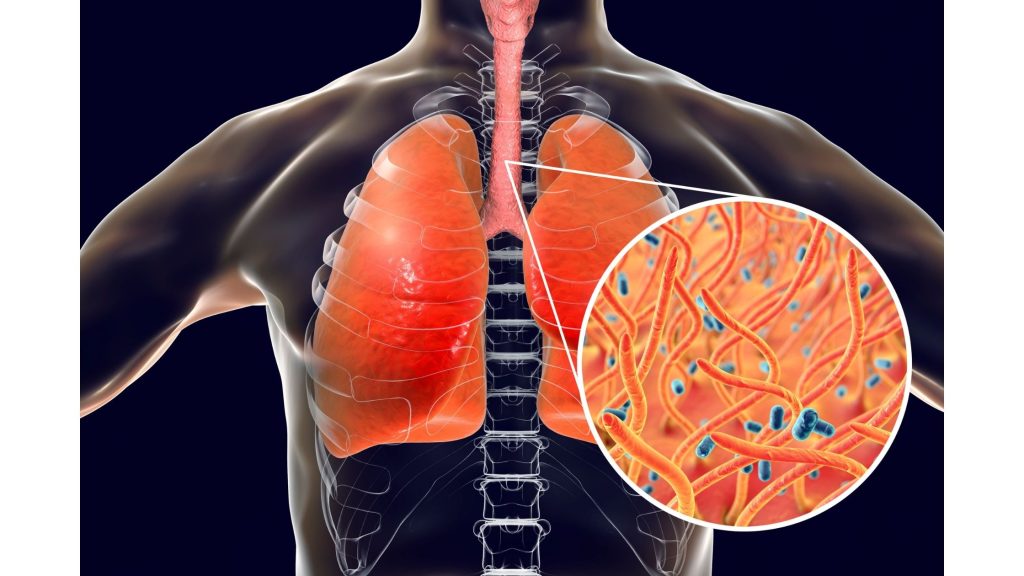Cough, which people of all ages may experience, usually occurs as a respiratory system reaction and can be triggered by many different reasons. In this article, the types, causes and effective treatment methods of cough will be discussed.
Cough Types and Causes
Cough is a defense mechanism that usually occurs as a result of irritation or infection in the respiratory tract. Respiratory infections such as colds, flu, bronchitis, pneumonia, allergies, asthma or other respiratory conditions can cause coughing. It is important to follow the doctor's recommendations, especially in cases of severe cough.

Trickling in the Throat and Cough at Night: Causes and Solutions
Night tickle and cough can be caused by a variety of factors, including exposure to allergens, respiratory infections, reflux disease, alcohol or cigarette use, dry air, or allergic reactions. These conditions often become more evident at night. Chronic respiratory problems such as sleep apnea or asthma can also cause coughing at night.
Effective Methods to Stop Cough
Medicines that stop cough may vary depending on the type and cause of the cough. Antitussive medications can be used to suppress dry cough. However, a cough may be a symptom of an underlying health problem, so it is important to consult a healthcare professional. Natural solutions include honey, ginger tea, hot drinks and steam therapy.
HONEY
Although its effects on dextromethorphan are limited, parents often find honey to be a positive natural solution to relieve cough. To use honey to treat cough, you can mix 2 teaspoons of honey with warm water or herbal tea. It is recommended to consume this mixture once or twice a day. However, honey should not be given to children under 1 year of age due to the risk of allergies.
GINGER
Ginger has anti-inflammatory properties that can help relieve a dry or asthmatic cough. It may also reduce nausea and pain. There are studies showing that some anti-inflammatory compounds found in ginger can reduce cough by relaxing the membranes in the respiratory tract. To make a soothing ginger tea, add 20-40 grams of fresh ginger slices to a glass of hot water, brew it and then drink it by adding honey or lemon juice. However, it is important to remember that ginger tea can cause stomach upset in some cases.
LIQUID CONSUMPTION
Drinking enough water is important to relieve a cough or cold. Research shows that drinking liquids at room temperature can reduce cough, runny nose, and sneezing. There are also studies indicating that hot drinks relieve symptoms such as sore throat, chills, and fatigue. These drinks include herbal teas, decaffeinated black tea, warm water and hot fruit juices.
STEAM
For people who produce a wet cough, steam can be an effective method to relieve the cough. Exposure to bath steam by taking a hot shower or bath or using a steam bowl may help inhaling the steam. However, it should be remembered that steam can damage the skin and cause dehydration. Therefore, it is important to drink plenty of water after steam application.
HAMMER ROOT
Marshmallow root is an herb with a long history of use to treat coughs and sore throats. There are studies showing that herbal cough syrups containing marshmallow root relieve coughs. Marshmallow root can also be found as dried herb or tea bags. You can make and drink marshmallow root tea by adding hot water. However, it should not be forgotten that marshmallow root may cause stomach discomfort, and precautions should be taken against this by drinking extra liquid.
OREGANO
Thyme is an herb used for cough, sore throat, bronchitis and digestive problems. There are studies showing that cough syrup containing thyme is more effective than other syrups. To make thyme tea, you can add 2 teaspoons of dried thyme to a glass of hot water and brew it. However, it should not be forgotten that excessive consumption of thyme tea may cause stomach discomfort.
Natural Herbal Tea Recipe
Herbal teas are among the commonly used effective solutions to relieve and relax cough. Thanks to the natural ingredients they contain, these teas can help relieve cough complaints. Here are herbal tea recipes that you can easily prepare at home to stop cough.
1. Ginger and Honey Tea: An ideal combination to relieve cough, ginger and honey tea has natural anti-inflammatory properties. Ginger can reduce respiratory irritation and honey can soothe the cough by soothing the throat.
2. Sage and Lemon Tea: Sage has cough-relieving and expectorant properties. Lemon, on the other hand, contains vitamin C and can support the immune system, thus speeding up the healing process.
3. Mint and Chamomile Tea: Mint and chamomile tea have a relaxing effect, especially on the throat. Peppermint can open the airways and offer a relaxing effect. Chamomile is known for its anti-inflammatory properties, which can reduce cough.
4. Eucalyptus and Honey Tea: Eucalyptus leaves contain essential oils that help relieve cough. Adding honey can improve the taste of tea and soothe the throat.
These teas offer practical and effective options for those who want to treat cough naturally.
Natural herbal teas are effective home remedies that can be used to ease and relieve cough. The natural properties of plants such as ginger, sage, peppermint, chamomile and eucalyptus can reduce irritation in the respiratory tract, provide an expectorant effect and soothe the throat. However, if your cough persists or becomes severe, it is important to consult a healthcare professional. Everyone's health is different, and expert opinion can help determine the right course of treatment. Herbal teas offer a reliable and natural option to relieve cough with their relaxing properties.
Cough in Babies and Children: Evaluation and Treatment
Cough in babies and children usually occurs as the body's attempt to get rid of irritating factors in the respiratory tract. Cough may develop due to reasons such as infections, cold, flu and croup. However, if certain symptoms occur, the child's health status should be evaluated. It is important to consult an emergency healthcare professional, especially in cases of difficulty breathing, fever, or bleeding.
Cough plays a vital role as our body's protective mechanism for the respiratory system. However, this common symptom can sometimes be a sign of more serious health problems. It is important to consult a healthcare professional, especially in cases of severe or prolonged cough. Treatment should be determined according to the underlying causes of the cough and should positively affect the individual's quality of life. With correct diagnosis, appropriate management and natural solutions, it is possible to cope with cough. As with any health problem, individuals can determine the most appropriate treatment plan and maintain a healthy respiratory system by collaborating with a qualified healthcare professional. Let's not forget that a healthy life starts with correct information and effective treatment methods.

















